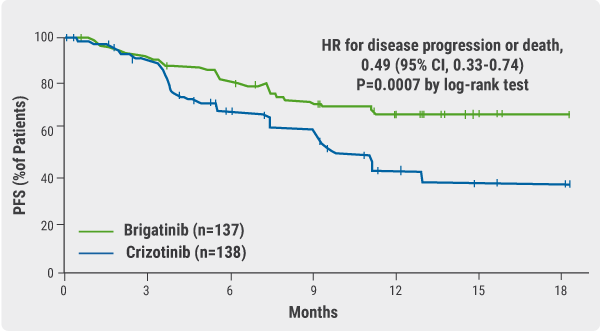Lung Cancer Europe, the pan-European platform for lung cancer patient advocacy groups, advocates for policies to improve the detection and management of lung cancer across Europe. In an online survey conducted between 20 May and 25 June 2020, it explored the psychosocial impact of lung cancer on patients and their caregivers across 4 domains: emotional wellbeing, daily life, family and loved ones, and work and finances. The survey generated a total of 559 responses (365 patients with lung cancer and 194 caregivers) and its findings were presented by Dr Anne-Marie Baird (Lung Cancer Europe, Switzerland).
Both groups reported that their emotional wellbeing had been negatively affected by lung cancer (77.2% of caregivers and 52.5% of patients). The top 4 emotions reported were uncertainty, sadness, anxiety, and fear. Impact on daily life was considered through physical limitations, activities of daily living, financial impact, work impact, and family and loved ones. The top 3 physical limitations were pain, breathlessness, and fatigue. Approximately 20% of patients reported that they were careful about who they shared their diagnosis of lung cancer with – a decision that led to decreased contact with family and loved ones. Approximately 33% of respondents reported a negative impact on work – either their own or that of someone within their household.
The survey also sought to identify areas of unmet needs in the lung cancer community. It found that supportive care was lacking. The top 3 unmet needs were related to psychological support, symptom control and impact on family and loved ones. A large proportion of respondents reported that they had not received supportive care from a patient support organisation or an NGO.
Take-home messages of the survey were the need to raise awareness of support services available for patients with lung cancer, and the need to integrate psychosocial services into the lung cancer care pathway.
- Baird A. The psychosocial impact of lung cancer – A European perspective. MA 05.06, WCLC 2021, 8–14 September.
Copyright ©2021 Medicom Medical Publishers
Posted on
Previous Article
« Discrepancies and lack of guideline adherence in EGFR+ NSCLC treatment Next Article
GLCC survey: Increased demand for patient-support services during COVID-19 pandemic »
« Discrepancies and lack of guideline adherence in EGFR+ NSCLC treatment Next Article
GLCC survey: Increased demand for patient-support services during COVID-19 pandemic »
Table of Contents: WCLC 2021
Featured articles
Atezolizumab promising for treating NSCLC brain metastases
Novel Therapy Approaches
Atezolizumab promising for treating NSCLC brain metastases
Interim results of nivolumab + rucaparib in SCLC
Pembrolizumab shows potential in TKI-resistant EGFR+ NSCLC, not ALK+
Real-world data shows inferior survival compared with IMpower150 results
NSCLC metastases also benefit from nivolumab + ipilimumab + chemo
Trial explores potential benefit of adding atezolizumab to usual care for mesothelioma
COVID-19
COVID-19 sees decreased lung cancer diagnoses and use of support services in US
Experiences of lung cancer patients during COVID-19: survey finds room for improvement
Evidence-Based Advocacy
GLCC survey: Increased demand for patient-support services during COVID-19 pandemic
Lung Cancer Europe patient survey identifies gaps in lung cancer care
Discrepancies and lack of guideline adherence in EGFR+ NSCLC treatment
Response Predictors
Baseline CD8+ T-cells predict NSCLC immunotherapy safety
Genomic profiling of NSCLC may be predictive of immunotherapy response
New preoperative classification scheme proposed for oligometastatic NSCLC
Prognostic factors in immunotherapy for advanced lung cancer
Related Articles

August 23, 2022
NADIM: Risk of progression identified through RNA sequencing
© 2024 Medicom Medical Publishers. All rights reserved. Terms and Conditions | Privacy Policy
HEAD OFFICE
Laarderhoogtweg 25
1101 EB Amsterdam
The Netherlands
T: +31 85 4012 560
E: publishers@medicom-publishers.com

